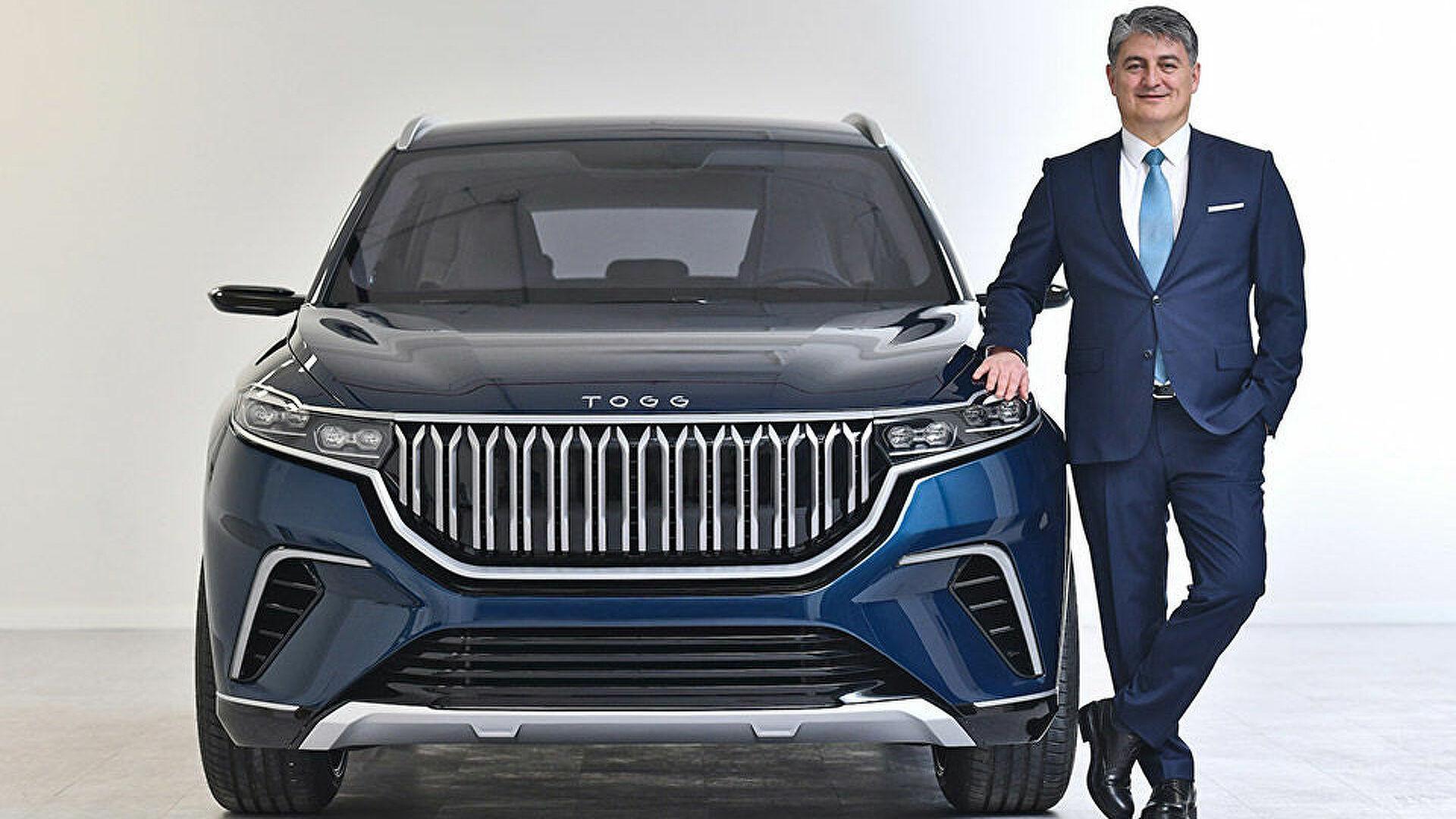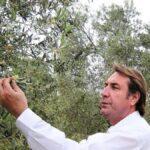WHERE IS THE GLOBAL AUTOMOTIVE INDUSTRY HEADED? ARE EVS FORGING AHEAD WORLDWIDE AS EXPECTED?
Data-based business models are an important potential in our current world. 40-50% of the profit pool is estimated to come data-based business models by 2035. More agile, creative, collaborative, and user-driven organizations will be successful in the near future, not large ones. Competition in this field is just beginning. Companies who have lined up at the starting line are all about even. Our competitors aren’t 100-year automotive brands. Perhaps in China, there are 500 startups like Turkey’s Automotive Joint Venture Group Inc. (TOGG), three-quarters of which work to take a share from the ecosystem to be created by the automobile rather than the automobile itself. Our rivals are fast, plain, and agile companies that understand electrics-electronics, connected devices, and smart applications, just like those that operate in China.
The number of electric vehicles (EV) in the world, currently 11 million, will rise to 145 million in 2030 if existing policies continue, according to the 2021 Global EV Outlook report prepared by the International Energy Agency (IEA). The market share of EVs will increase to 7%.
EV sales rose by 41% to 3 million units in 2020, compared to the previous year, despite the pandemic. The number of EVs has reached 10 million units as of the end of 2020.
SOME MANUFACTURERS ASSERT THAT THE USAGE OF EVS WON’T BE EASY UNTIL HYDROGEN TECHNOLOGY BECOMES WIDESPREAD. HOW WILL THIS TECHNOLOGY AFFECT THE AUTOMOTIVE INDUSTRY?
These types of developments are disruptive technologies. As part of our job, we track all of these disruptive technologies, which haven’t fully matured. A fuel cell vehicle is also an EV. If we have a good EV, its transformation into a fuel cell vehicle won’t be difficult when the technology and infrastructure of the EV become efficient and affordable. But currently we focus on true-born EVs, which have electrical batteries.
THE AUTOMOTIVE INDUSTRY HAS EXPERIENCED A CHIP SHORTAGE FOR QUITE SOME TIME. HOW WOULD YOU DEAL WITH THIS IF YOU HAD STARTED MANUFACTURING?
We estimate this crisis to continue for another year. Given our orders and our plans, we don’t think that we’ll experience the chip crisis. However, there will be a more important crisis than the chip crisis: the battery crisis. There are no cells. The capacity of cell manufacturers has already been reserved worldwide until 2030 and beyond, while everyone bustles to manufacture more EVs. That’s why our battery subsidiary SiRo, which we established with our partner Farsis and which produces in Gemlik, has strategic importance. We also won’t experience the battery cell crisis since we planned for this from the beginning.
YOU CHANGED THE DIRECTION OF TOGG TO FOCUS ON EVS WHEN YOU WERE NAMED THE CEO. HOW HAS THIS PROCESS DEVELOPED?
More than 70% of Turkish consumers are ready to shift to EVs, according to our research, as well as surveys by consultancy firms and external independent institutions. Compared to much of Europe, this rate is near the top of the market. We also know that Turkish consumers tend to use technology and rapidly adapt to new technologies. We started our journey considering this data.
As soon as we started our journey, we conducted a survey with more than 2,000 people from across the country. This showed that there is high demand for an SUV (Sport Utility Vehicle) in the C segment in the Turkish market. Market estimations point out that the sedan market will grow by 1-2% in the next 7-8 years, while the SUV market will expand by over 8%. That’s why the first product was decided to build was a C-SUV. Currently, this demand is largely met by imported vehicles in Turkey. A domestic option for this segment will allow us to get a slice of the cake – now we aspire to grow that slice of the cake.
We’ll manufacture true-born EVs. We won’t use internal combustion engines. We won’t have a hybrid option. When our vehicle will be released to the market in 2022, it will be the first true-born electric SUV on the European continent to be produced by an unconventional manufacturer.
WILL THE VEHICLES MANUFACTURED BY TOGG MAKE A DIFFERENCE IN THE EV WORLD?
There is a TOGG team that looks out for global competition. A good portion of our employees have worked on international projects. 27 people returned to Turkey and joined the team to reverse brain drain. 44% of the TOGG employees have master’s degrees and a doctorate. The rules of the game are different now. Our business plan aligns with this. We formed TOGG with a completely user-driven approach. If a developed product doesn’t draw its strength from the consumer, this product or service is doomed to die. We’ve defined our smart device from the beginning as user-driven, smart, empathetic, connected, autonomous, shared, and electrical, and we have shaped our design and product development around this. We have registered this vision with the USE-CASE MOBILITY® concept.
We developed more than 40 innovative concepts by studying over 350 use cases. We had one on one interviews with over 30 focus groups, and we conducted quantitative research with more than 2,000 people. We
prepared the User Journey map based on the concepts we observed there. Collaboration with other companies, especially with start-ups, is important in our mobility ecosystem. We looked at strategic fields such as mobility solutions, big data, cyber security, fintech, blockchain, gamification, smart grids/ mobile services. We examined 226 startups, and held talks with 125 of them. We inked a deal with 24 startups, and we now work with 10 of them. Along with these startups, we will transform the mobility system in Turkey.
To strengthen our position alongside global competition in Europe, we established our subsidiary TOGG Europe GmbH at de:hub, which is located in Stuttgart and is one of 12 innovation centers in Germany. We’ve started user research under the leadership of Murat Gunak, who leads with TOGG Europe. The office is located at the center of the startup ecosystem. Thomas Junk, the former head of IDEO’s Munich Office, joined our team as the User Experience Lead. We also established the TOGG Research Center (TAM) in Ankara to develop new technologies and build university-industry collaboration. This infrastructure was set up to make us competitive in the world.
CAR PRICES ARE QUITE HIGH IN TURKEY DUE TO TAXES. IS THERE ANY SPECIFIC PLAN TO MAKE ‘TURKEY’S AUTOMOBILE’ MORE ACCESSIBLE IN THIS ENVIRONMENT?
Our pricing will be clear at the end of 2022, or in the beginning of 2023. We predict that EVs won’t have become widespread by the time our vehicle is released to the market. That’s why we’ll compete with internal combustion vehicles, especially with diesel vehicles in the C segment. Our C-SUV will be released to the market at a price competitive with other vehicles in this segment.
THOSE WHO BOUGHT EXISTING EVS HESITATE WHEN THEY TRAVEL FROM ISTANBUL TO ANKARA. WHAT WILL YOU DO TO EXTEND THE RANGE AND SHORTEN THE CHARGING TIME?
Our automobile will be 80% charged in under 30 minutes using rapid charging. It will have range options of ‘+300’ and ‘+500’ kilometers using the trueborn electric modular platform.
It will also have a long-life battery-package ensured by developed battery management and active thermal management systems. The car can accelerate from 0-100 km/h in 7.6 seconds with 200 horsepower, and in under 4.8 seconds with 400 horsepower. Considering internal combustion vehicles that have this strength, they don’t even have a range of 500 kilometers. The issue is not the range but the development of charging infrastructure. We’ve worked building charging infrastructure in coordination with relevant stakeholders for a long time. We plan to have one charging unit per 25 square kilometers in areas where population and traffic are heavy. That’s why the charging issue will no longer be a fear
WHAT’S YOUR ROADMAP AND STRATEGY FOR THE BATTERY?
Along with the battery firm Farasis Energy, we established a company called SiRo Silk Road Temiz Enerji Cozumleri in September 2021. We’ve taken a strategic step to contribute to Turkey’s technological transformation in the mobility ecosystem. We began working to manufacture and develop domestic battery products with a 20gigawatt hour investment with SiRo. We’ll build our battery factory next to our facilities in Gemlik. We will lay the foundation as soon as investment permits are issued. The chemistry used in our batteries is called NMC and is created from a mixture of nickel, manganese, and cobalt, and is classed as having high nickel density among NMC batteries. With the support of this chemistry, our battery is in the high energy density class. Its advantage for users is that their vehicle will have a longer range than an EV with an average battery. The primary goal of SiRo is to strategically guarantee the long-term battery demand needed by TOGG and to develop highly efficient battery technologies for the future, primarily by conducting R&D studies on battery cells in Turkey.
The other goals are to supply batteries for all kinds of EVs in the existing battery product range and to develop a battery product range that will be an important battery energy storage systems provider in non-automotive sectors, particularly the energy industry.
THE ELECTRICITY DISTRIBUTION IN˹ FRASTRUCTURE ISN’T IN A POSITION TO FULLY POWER THE CHARGING STATIONS IN TURKEY. WILL THE ELECTRICITY INFRASTRUCTURE BE READY WHEN ‘TURKEY’S AUTOMOBILE’ TAKES THE ROAD?
We said that our charging infrastructure will be ready when we take to the road, and we’ve made considerable progress with our stakeholders to keep our word. We will proceed jointly with the government with regards to the electricity infrastructure. The smart grid system and charging stations will be ready in
Turkey before mass production begins.
HOW DO YOU SEE THE EXPORT POTENTIAL OF ‘TURKEY’S AUTOMOBILE’?
A brand that can’t be successful in its own country fails in exports abroad. That’s why we will operate in Turkey for 18 months or two years before we go international. The first reason for this is to have success in the country. The second reason is the fact that we are establishing a company from scratch that is a player in the new world, and new ecosystem. That’s why this process will take time – along with the development of the automobile, we will need to get the processes and systems right.
The European market will be our first target when we begin exports. In the beginning, we aim to export not to a single country but to several countries at once. Germany, France, Spain, Italy, and the Nordic countries where EVs are commonly used already are among our first planned export countries.
WHAT IS THE LOCALIZATION RATIO OF TURKEY’S AUTOMOBILE? HOW WILL THIS DEVELOP IN THE COMING YEARS?
It isn’t a coincidence that we built our facilities in Gemlik. We are at the heart of the automotive world, at the center of the entire automotive supply industry. Our facilities are equidistant to all the major automotive supply companies and are located right next to the port. We’ve completed our supplier selections for our first vehicle, C-SUV, and 75% of them will be from Turkey. This figure corresponds to 51% in terms of value. We will aim for a 68% localization ratio three years after we penetrate the market.










